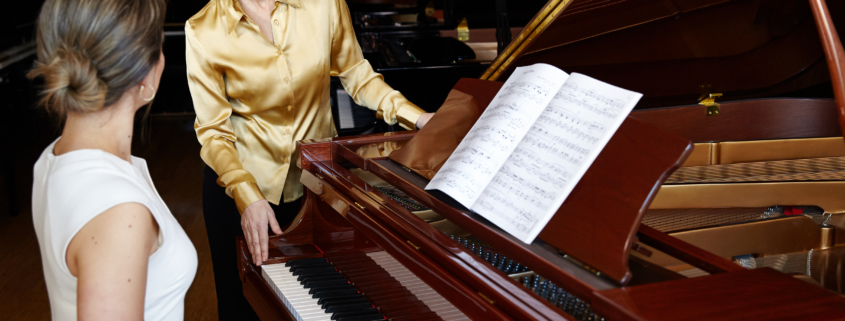How to care for your piano
Pianos are magnificent instruments and are built to last. There are many intricate components involved in the beautiful sound we hear either at home, in class or on a concert stage.
A piano is a long term investment and depending on the age, how regularly it is played and how often it is serviced, the following are some recommendations of what is involved in caring for your piano.
In the early years you would expect to have regular tuning, and perhaps some voicing and regulation. As time goes on some components may need replacing/repair, or it could be time for an upgrade. This is why it is important to have a reliable and trusted piano service provider to guide you through these transitions. At Theme and Variations Piano Services we get to know our instrument and help guide you through these transitions by providing reliable and professional service and advice.
How to care for your piano
The modern piano today as we know it is a complex instrument made of 12,000 individual parts, supporting six functional features:
- keyboard
- hammers
- dampers
- bridge
- soundboard
- strings
Many parts of a piano are made of materials selected for strength and longevity – in particular wood.
As pianos are comprised of natural materials that absorb moisture (such as timber, felt, cloth), they are very susceptible to changes in humidity. As the relative humidity increases, the soundboard swells as it absorbs the moisture in the air. This pushes against the strings, increasing the tension, which inevitably forces the piano to go ‘sharp’ in the middle register. Sometimes the humidity will affect the bushing cloth, which can cause some keys to ‘stick’. When the weather changes back to dryer conditions, the pitch will return to where it was, but not note-perfectly. Some notes may lag in pitch, and some notes may continue to stick.
With these ongoing changes throughout each year, regular service tuning is required to ensure that the correct pitch is maintained. Its recommended to tune your piano twice a year. Without regular tuning a piano can become significantly out of tune, meaning the piano has moved far-off from the standard international pitch of A-440. When this occurs a standard tuning may not suffice and additional services may be required such as a pitch raise or voicing/regulation. It is recommended to have a piano tuned twice per year.
There are simple things you can do to care for your piano such as:
Location
Avoid putting your piano near direct sunlight as this could lead to sun damage on the outer piano case. If this unavoidable its recommended to use a piano cover when its not in use.
Avoid areas such as outside doors and windows that can create drafts and change in temperature as well as heating vents and fireplaces.
Surface Treatment
Your piano should only be wiped with a soft, dry piece of cloth or a slightly moistened leather cloth. We strongly advise you to refrain from using furniture polish as it contains waxes and in some cases silicone. Any later re-treatment of the surface could then be very expensive.
Dust the outside of your piano and the keys so that dust does not accumulate and get inside the keys and piano. Its recommended to have the inside of your piano dusted by a professional.
Be mindful of food and drink and pay attention to clean hands, dirt or even ingredients in some hand creams can cause build up residue that can be difficult to clean.
Keyboard
When the piano is not being played, always have the piano lid closed to avoid dusk getting into the piano keys.
Room Temperature
Humidity and dampness can be unavoidable especially in Sydney. If your home is prone to some dampness, it is highly recommended to have the piano in a dry room with a dehumidifier so that mould does not begin to accumulate.
Playing
Play your piano regularly, by playing at least once a week can keep the piano in good working order. This also can help identify any issues that may occur with you piano over time.



